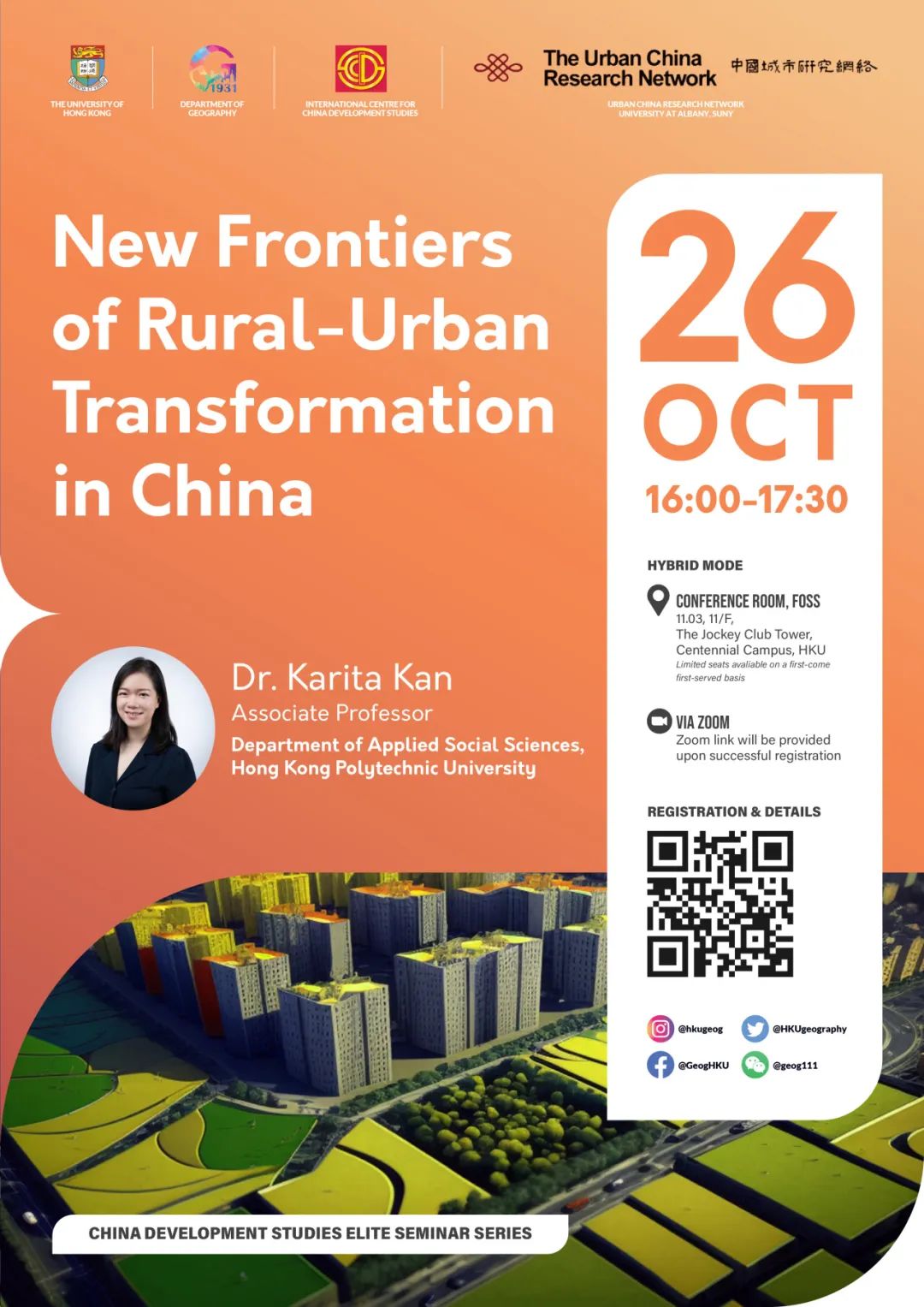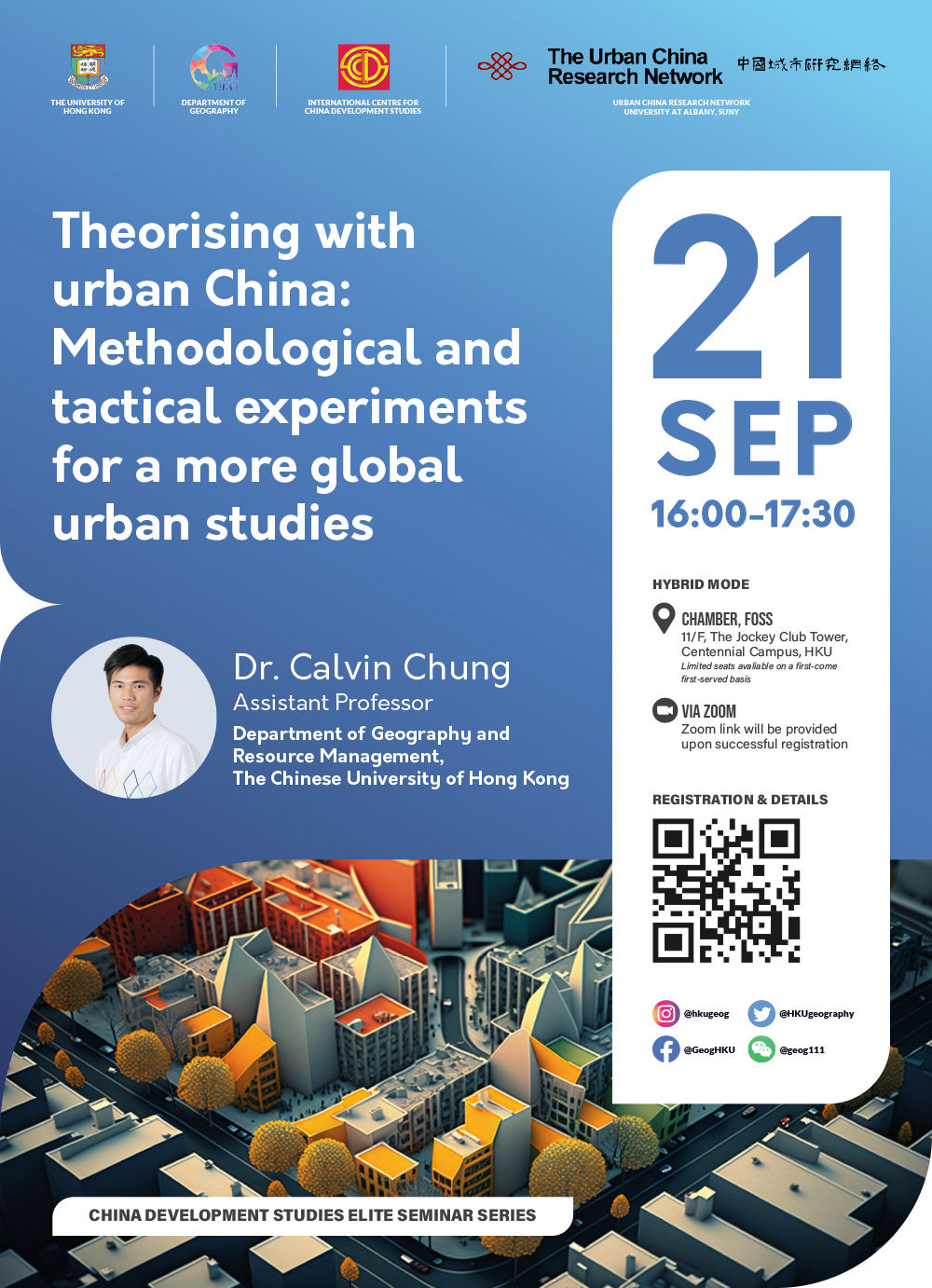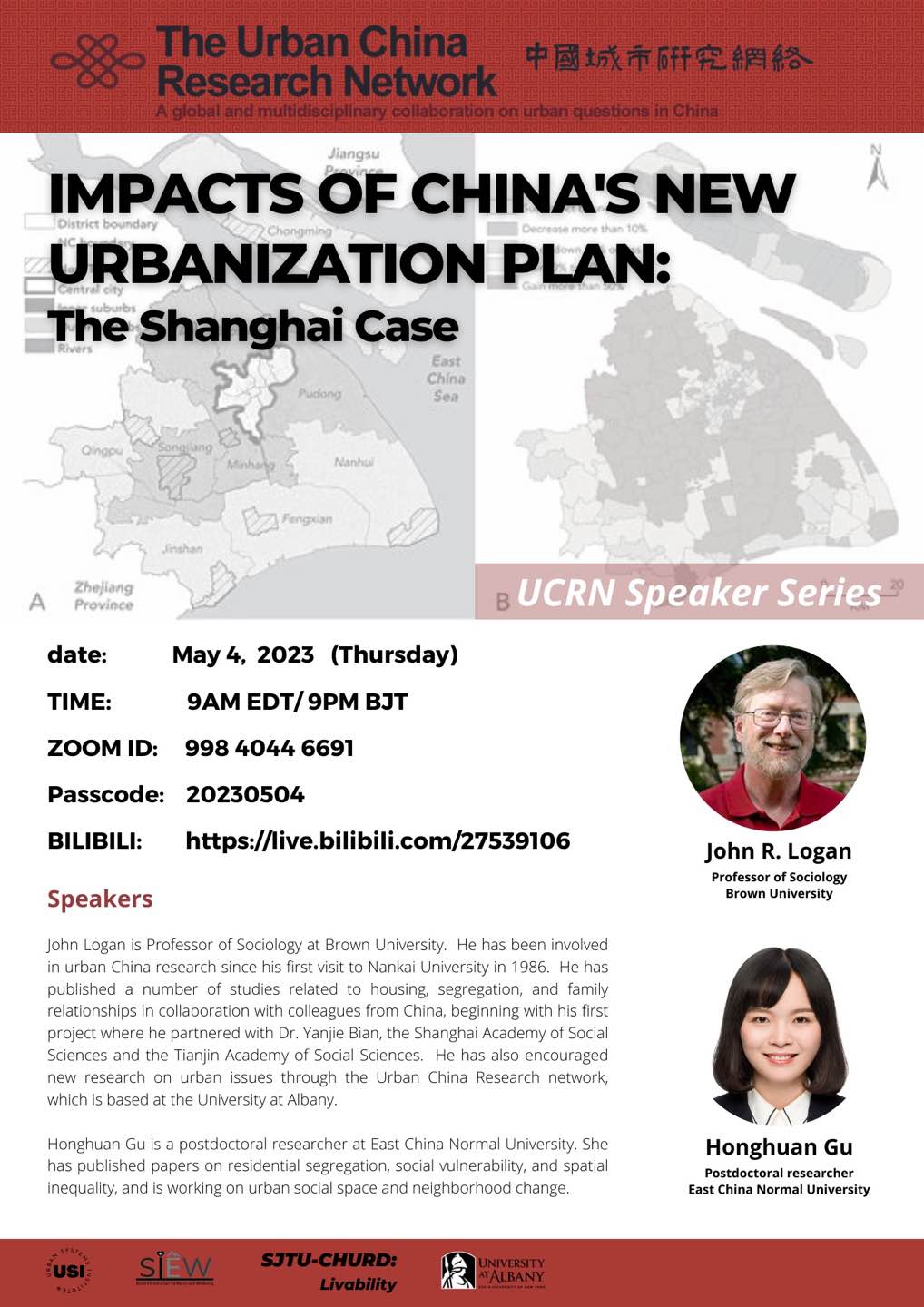UCRN Speaker Series
Hong Kong Public and Squatter Housing: Geopolitics and informality, 1963-1985
14/12/2023 (8:30 AM EDT / 9:30 PM BJT)) -- Zoom (detail information click the flyer)
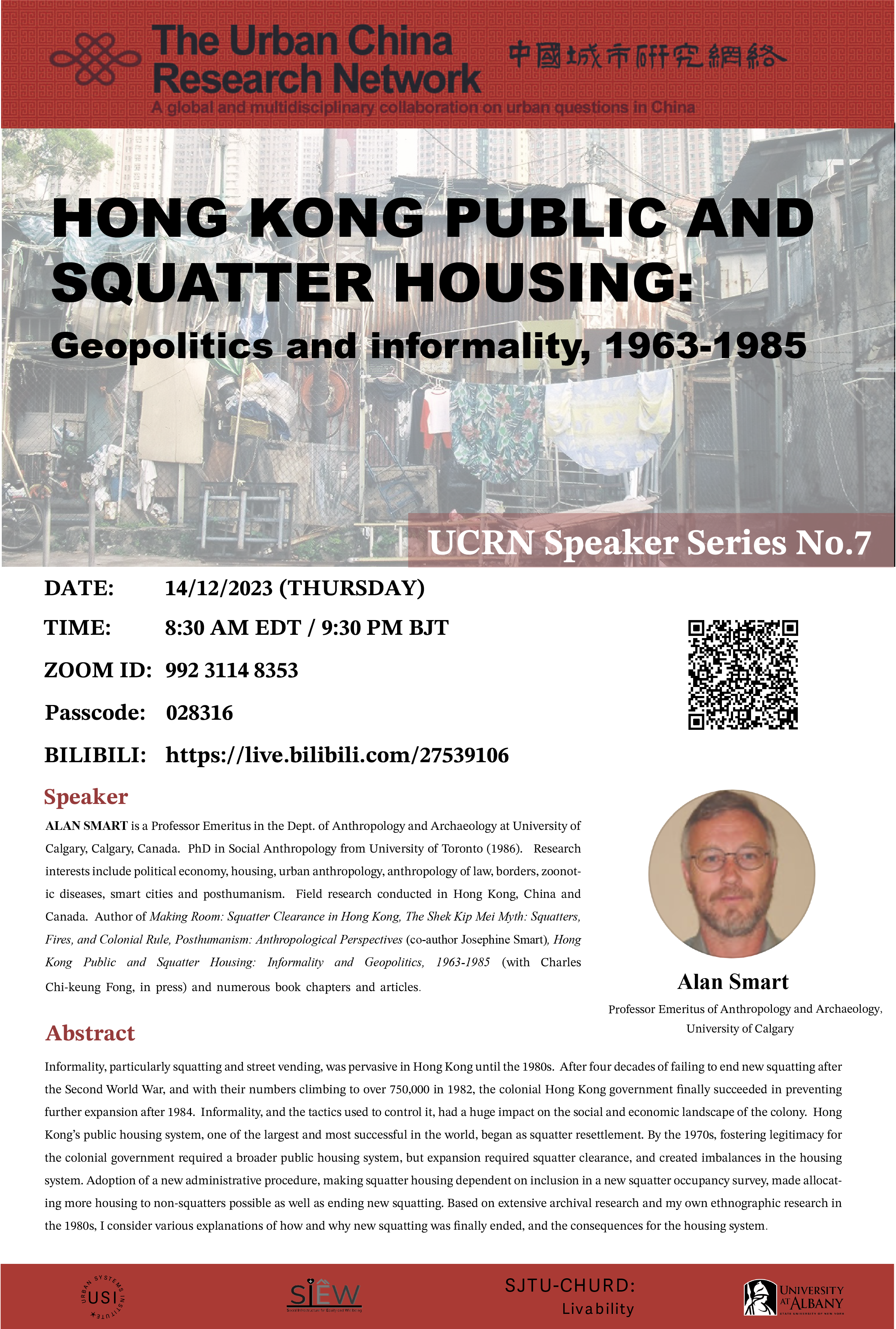 |
Abstract: Informality, particularly squatting and street vending, was pervasive in Hong Kong until the 1980s. After four decades of failing to end new squatting after the Second World War, and with their numbers climbing to over 750,000 in 1982, the colonial Hong Kong government finally succeeded in preventing further expansion after 1984. Informality, and the tactics used to control it, had a huge impact on the social and economic landscape of the colony. Hong Kong’s public housing system, one of the largest and most successful in the world, began as squatter resettlement. By the 1970s, fostering legitimacy for the colonial government required a broader public housing system, but expansion required squatter clearance, and created imbalances in the housing system. Adoption of a new administrative procedure, making squatter housing dependent on inclusion in a new squatter occupancy survey, made allocat- ing more housing to non-squatters possible as well as ending new squatting. Based on extensive archival research and my own ethnographic research in the 1980s, I consider various explanations of how and why new squatting was finally ended, and the consequences for the housing system Bio: Dr. Alan Smart is is a Professor Emeritus in the Dept. of Anthropology and Archaeology at University of Calgary, Calgary, Canada. PhD in Social Anthropology from University of Toronto (1986). Research interests include political economy, housing, urban anthropology, anthropology of law, borders, zoonot- ic diseases, smart cities and posthumanism. Field research conducted in Hong Kong, China and Canada. Author of Making Room: Squatter Clearance in Hong Kong, The Shek Kip Mei Myth: Squatters, Fires, and Colonial Rule, Posthumanism: Anthropological Perspectives (co-author Josephine Smart), Hong Kong Public and Squatter Housing: Informality and Geopolitics, 1963-1985 (with Charles Chi-keung Fong, in press) and numerous book chapters and articles. Profile : https://antharky.ucalgary.ca/profiles/alan-smart. | ; | |
Collaborative Planning in China, by Yanliu Lin
11/30/2023 (8:00 AM EDT/9:00 PM Beijing/2:00 PM Amsterdam) -- Zoom (detail information click the flyer)
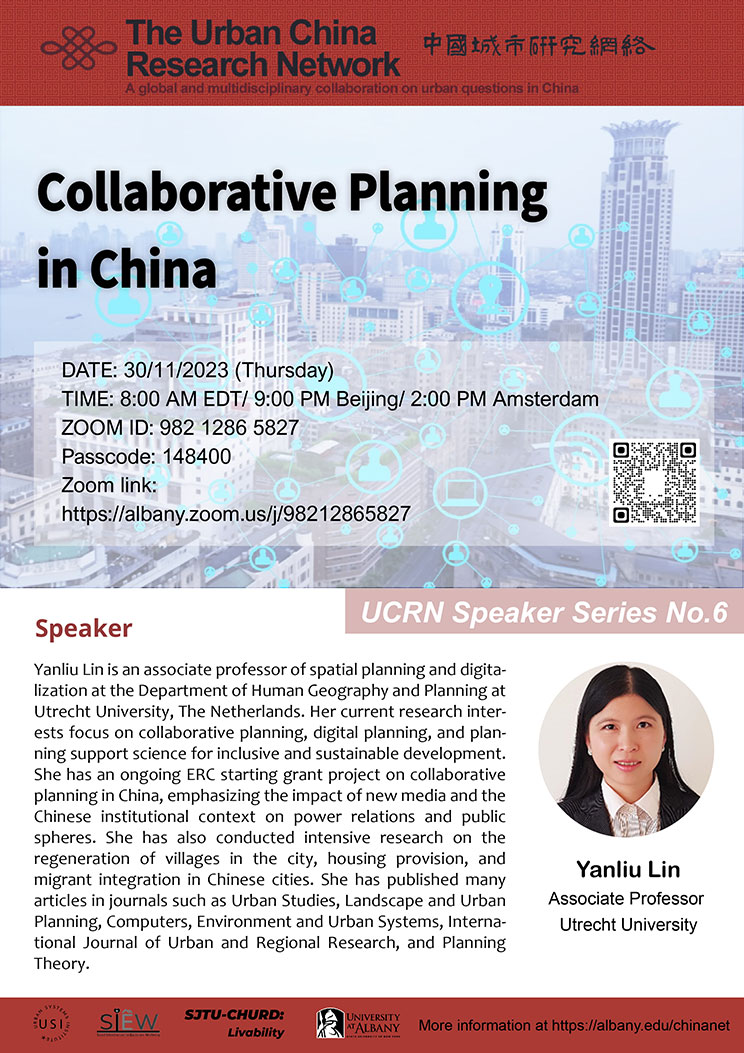 |
Abstract: Collaborative planning has recently emerged in urban renewal and environmental management in China to address increasing complexity, diversity, and pluralism driven by economic development. However, the egalitarian principles that ground collaborative planning theory call into question its validity in China. The theory emphasizes consensus building in which various stakeholders come together for face-to-face dialogue to address controversial issues. It rests on three assumptions: democratic institutions, neutral power, and communicative rationality. These assumptions, which are often debated in the Western context, should clearly be questioned in the Chinese context. Social media and online participatory platforms provide a new public sphere enabling new forms of communication and power relations. Collaborative planning practices are also shaped by the Chinese institutional contexts such as the political system, policies and culture as well as local contexts such as socioeconomic and environmental factors. Some are characterized by the strong power of government and weak civic engagement, while others reflect the complex role of civil society and planners. This leads to the heterogeneous nature of collaborative planning practices in the Chinese context. Dr. Yanliu Lin Associate Professor of Spatial Planning and Digitalization Department of Human Geography and Spatial Planning, Utrecht University Profile : https://www.uu.nl/staff/YLin. | ; | |
New Frontiers of Rural-Urban Transformation in China, by Karita Kan
10/26/2023 (16:00-17:30 HKT) -- In-person and Zoom
Theorising with urban China: Methodological and tactical experiments for a more global urban studies, by Calvin Chung
9/21/2023 (16:00-17:30 HKT) -- In-person and On-line
Venue: Chamber, Faculty of Social Sciences, 11/F, The Jockey Club Tower, Centennial Campus, HKU
The Development Model of Urban China: A Perspective from Land Property Rights by Jieming Zhu
5/15/2023 (9:30 am BJT) -- In-person and On-line
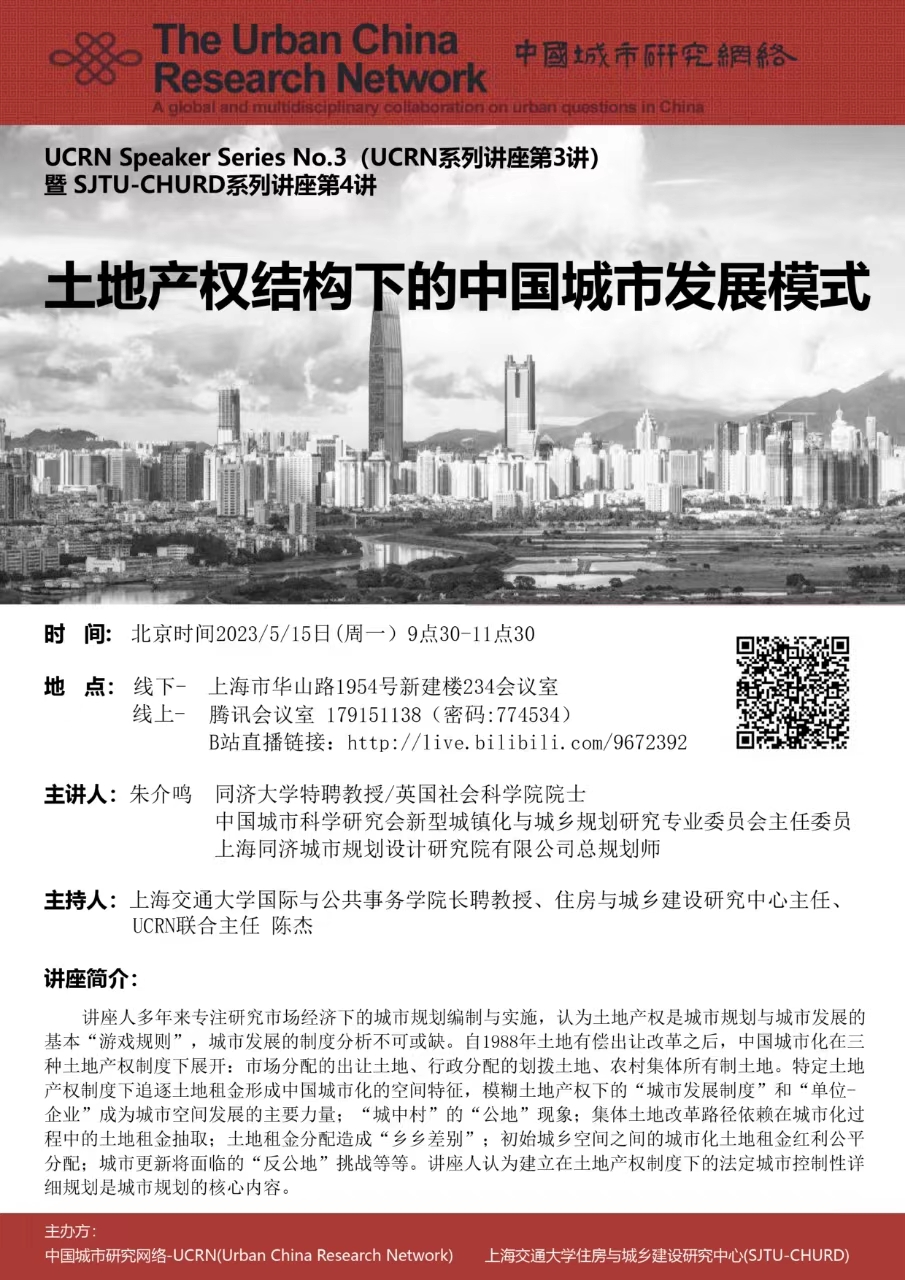 |
Prof. Jieming Zhu, College of Architecture and Urban Planning, Tongji University (Can link to see his lastest researches --https://www.researchgate.net/profile/Jieming-Zhu) -In-person: 1954 Huasan Road, conference room No. 234, Shanhai Jiaotong University -On-line: Tencent meeting: ID: 179151138, password: 774534 Bilibili live stream:https://live.bilibili.com/9672392 |
; | |
Impacts of China's New Urbanization Plan: The Shanghai Case by John R. Logan and Honghuan Gu
5/4/2023 (9 am EDT/9 pm BJT)-- Zoom Meeting
China Urbanizing: Impacts and Transitions by Weiping Wu
4/6/2023 (9 am EDT/9 pm BJT)-- Zoom Meeting
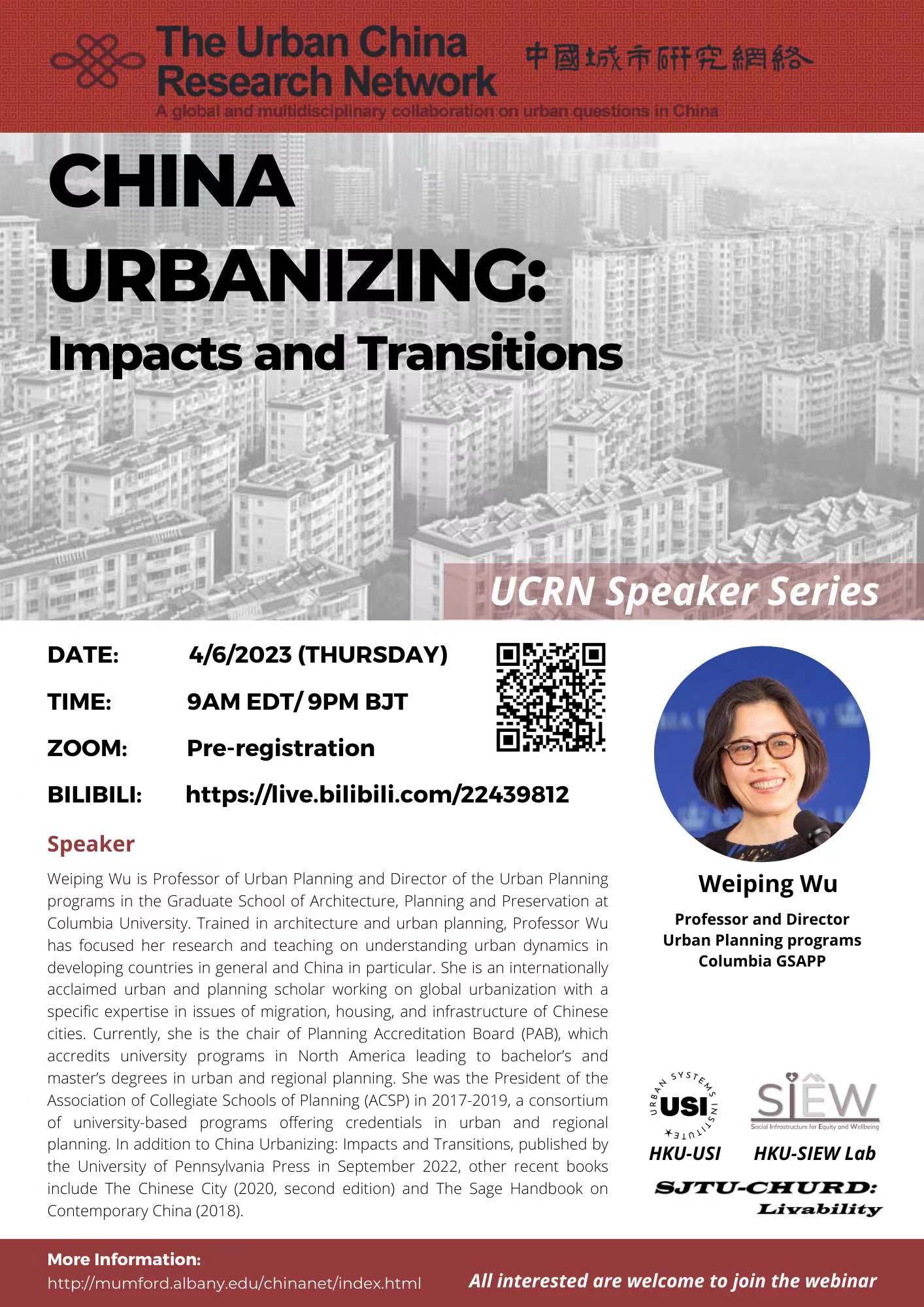 |
China’s urbanization has evolved amid the interconnected forces of historical legacies, contemporary state interventions, and human and ecological conditions. Embracing this notion, a new collection of work in the book China Urbanizing: Impacts and Transitions questions the conventional imagination centering cities in the West. This presentation highlights key conclusions and theoretical touchstones that have emerged. In addition to outlining new perspectives on the impacts of China’s urbanization, Professor Wu will point to the transitions underway as well as the gravity of the progress, particularly in the context of demographic shifts and climate change. Weiping Wu is Professor of Urban Planning and Director of the Urban Planning programs in the Graduate School of Architecture, Planning and Preservation at Columbia University. Trained in architecture and urban planning, Professor Wu has focused her research and teaching on understanding urban dynamics in developing countries in general and China in particular. She is an internationally acclaimed urban and planning scholar working on global urbanization with a specific expertise in issues of migration, housing, and infrastructure of Chinese cities. Currently, she is the chair of Planning Accreditation Board (PAB), which accredits university programs in North America leading to bachelor’s and master’s degrees in urban and regional planning. She was the President of the Association of Collegiate Schools of Planning (ACSP) in 2017-2019, a consortium of university-based programs offering credentials in urban and regional planning. In addition to China Urbanizing: Impacts and Transitions, published by the University of Pennsylvania Press in September 2022, other recent books include The Chinese City (2020, second edition) and The Sage Handbook on Contemporary China (2018). |
; | |
